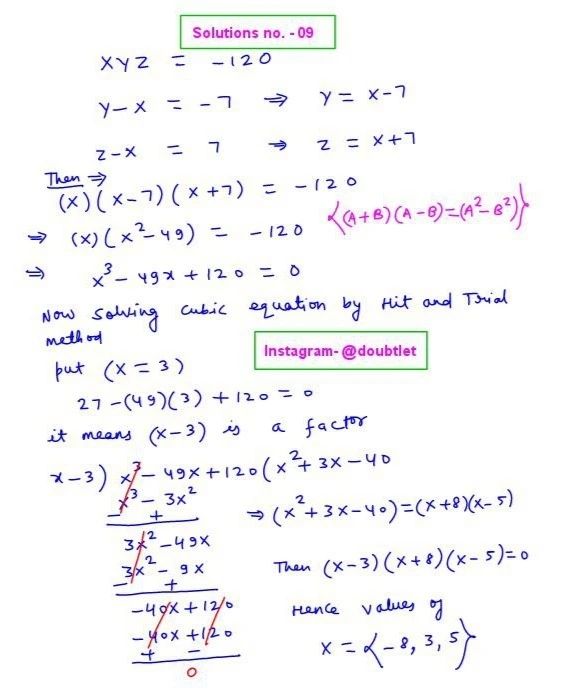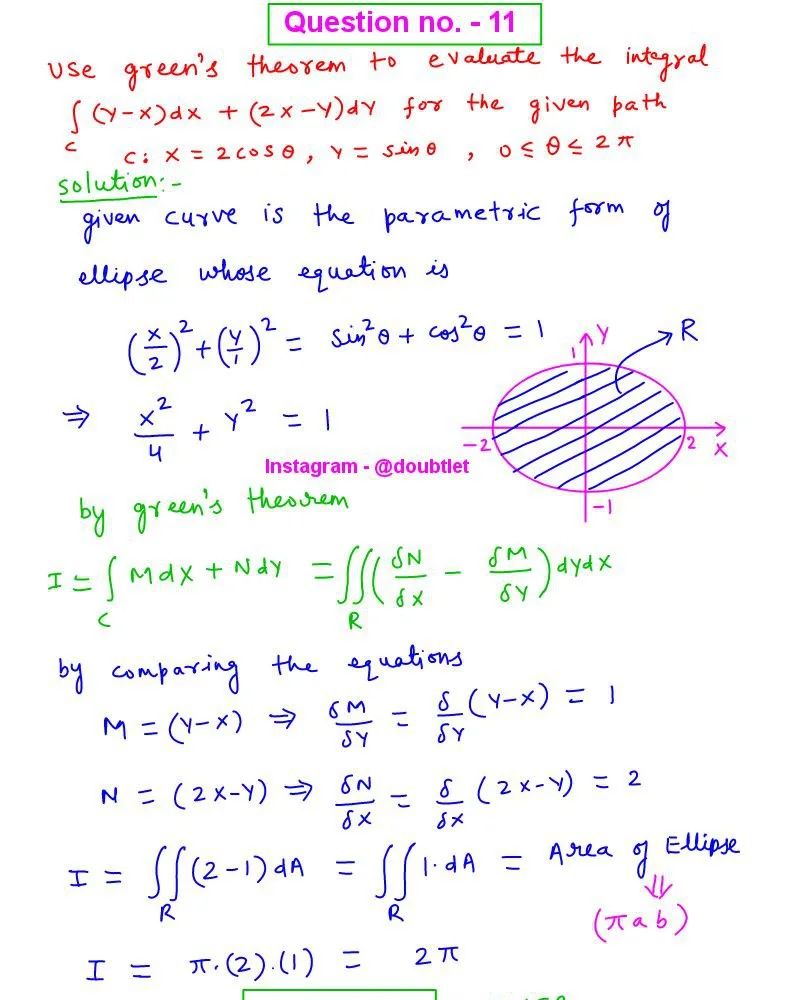









In this problem, is a two-parameter family of solutions of the second-order DE . If possible, find a solution of the differential equation that satisfies the given side conditions. The conditions specified at two different points are called boundary conditions. (If not possible, enter NOT.)
Given:
,
In this problem, is a two-parameter family of solutions of the second-order DE . If possible, find a solution of the differential equation that satisfies the given side conditions. The conditions specified at two different points are called boundary conditions. (If not possible, enter NOT.)
Given: ,
Question :
In this problem, is a two-parameter family of solutions of the second-order de . if possible, find a solution of the differential equation that satisfies the given side conditions. the conditions specified at two different points are called boundary conditions. (if not possible, enter not.)
given: ,

Solution:

Neetesh Kumar | November 09, 2024
Differential Equation Homework Help
This is the solution to Math 2A, section 13Z, Fall 2023 | WebAssign
Math002ACh1Sec02 (Homework) Question - 10
Contact me if you need help with Homework, Assignments, Tutoring Sessions, or Exams for STEM subjects.
You can see our Testimonials or Vouches from here of the previous works I have done.
Step-by-Step-Solution:
Step 1: Write Down the General Solution and Apply
The general solution to the differential equation is:
We are given the initial condition . Substitute into the general solution:
Since , we have:
Step 2: Substitute into the Solution
With , the general solution simplifies to:
Step 3: Apply the Boundary Condition
Now we use the boundary condition .
Substitute into the simplified solution:
Since , this becomes:
Step 4: Write the Particular Solution
With and , the particular solution to the differential equation is:
Final Answer:
The solution that satisfies the boundary conditions is:
Please comment below if you find any error in this solution.
If this solution helps, then please share this with your friends.
Please subscribe to my Youtube channel for video solutions to similar questions.
Keep Smiling :-)
Comments(0)



Leave a comment